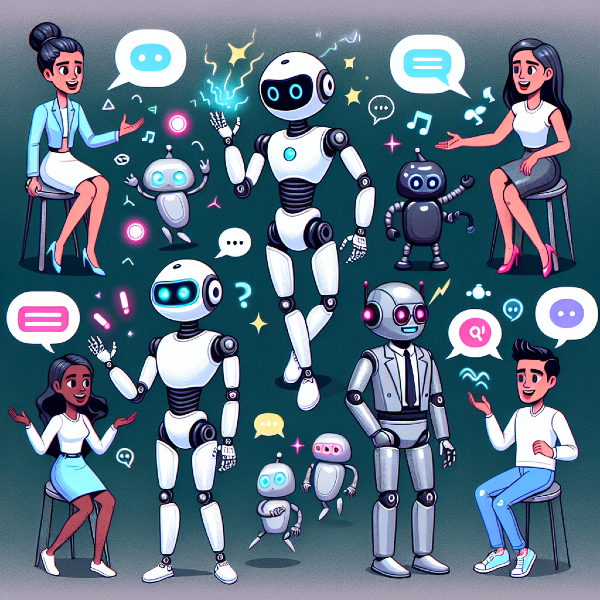The Impact of AI Chatbots on Customer Service Excellence

Artificial Intelligence (AI) has revolutionized various industries, and customer service is no exception. AI chatbots, in particular, have become an integral part of customer service strategies for many businesses. Let's explore the impact of AI chatbots on customer service excellence, examining both the benefits and challenges they bring.
The Rise of AI Chatbots in Customer Service
Historical Context
The concept of chatbots dates back to the 1960s with the creation of ELIZA, a simple text-based program that mimicked conversation. However, it wasn't until the advancements in AI and natural language processing (NLP) in the 2010s that chatbots became sophisticated enough to handle complex customer service tasks.
Current Adoption
Today, AI chatbots are employed by businesses across various sectors, from retail and finance to healthcare and telecommunications. Companies like Amazon, Bank of America, and Sephora have integrated chatbots into their customer service operations to enhance user experience and efficiency.
Benefits of AI Chatbots in Customer Service
24/7 Availability
One of the most significant advantages of AI chatbots is their ability to provide round-the-clock service. Unlike human agents, chatbots do not require breaks or sleep, enabling businesses to offer constant support to their customers. For example, H&M's chatbot is available 24/7 to assist customers with their inquiries and purchase decisions.
Cost Efficiency
AI chatbots can handle a large volume of inquiries simultaneously, reducing the need for a large customer service team. This leads to significant cost savings for businesses.
Improved Response Time
Chatbots can process and respond to customer queries almost instantaneously. This immediate interaction enhances customer satisfaction by reducing wait times.
Enhancing Customer Experience
Personalization
Modern AI chatbots can analyze customer data to provide personalized responses and recommendations. This level of personalization helps to create a more engaging and satisfactory customer experience. Starbucks' chatbot, for instance, can remember customers' previous orders and suggest similar items.
Multichannel Support
AI chatbots can operate across various platforms, including websites, social media, and messaging apps, ensuring a seamless customer experience. For example, Domino's Pizza uses a chatbot that allows customers to place orders through Facebook Messenger, Slack, and the company's app.
Challenges and Limitations
Lack of Emotional Intelligence
Despite their efficiency, AI chatbots lack the emotional intelligence that human agents possess. They may struggle to handle complex or sensitive issues that require empathy and understanding. For example, a customer dealing with a personal crisis might find a chatbot's responses inadequate.
Technical Issues
AI chatbots are not immune to technical glitches and errors. Issues such as misinterpretation of queries, inability to understand slang or regional dialects, and system downtimes can hinder their effectiveness.
Future Prospects
Advancements in AI
Continuous advancements in AI and machine learning are likely to enhance the capabilities of chatbots. Future developments may include improved natural language understanding, better emotional intelligence, and more sophisticated personalization.
Integration with Human Agents
The most effective customer service strategies will likely involve a hybrid approach, integrating AI chatbots with human agents. This combination can leverage the strengths of both, ensuring efficiency and empathy in customer interactions.
Conclusion
AI chatbots have significantly impacted customer service excellence by providing 24/7 availability, cost efficiency, and improved response times. While they enhance the customer experience through personalization and multichannel support, challenges such as lack of emotional intelligence and technical issues remain. As AI technology continues to evolve, the integration of chatbots with human agents will be key to achieving optimal customer service excellence.
